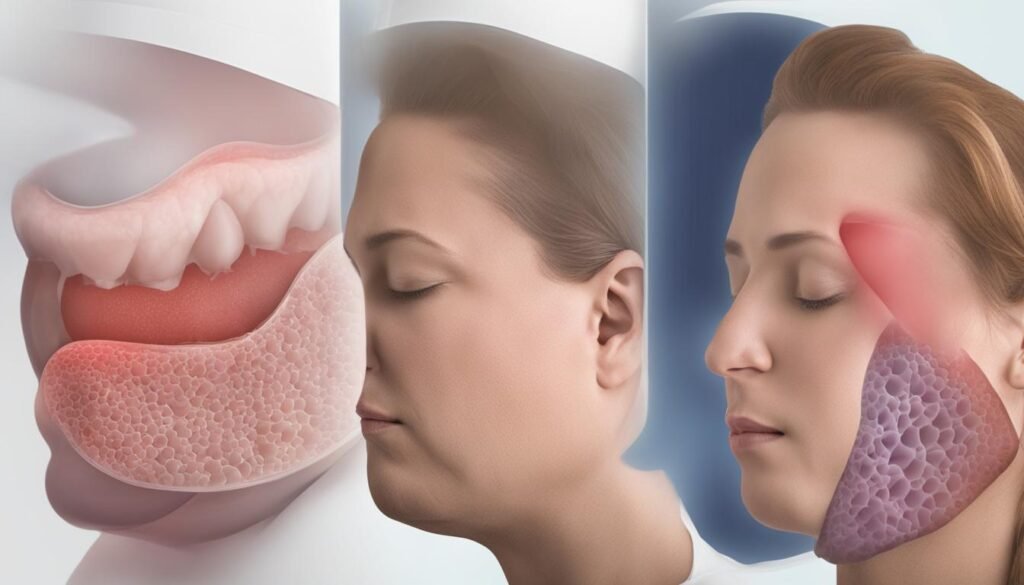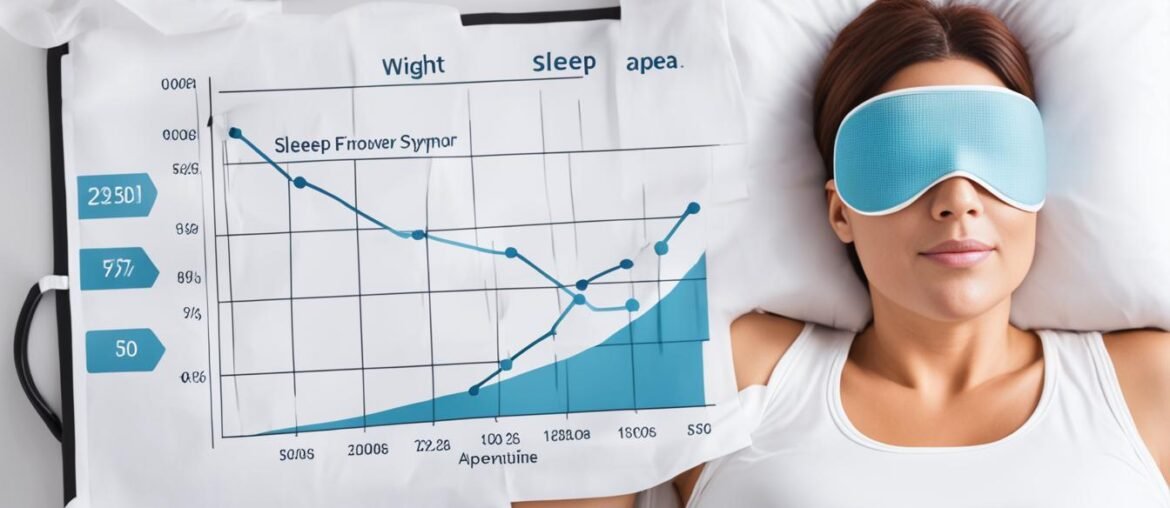Sleep apnea is a common disorder where individuals experience disrupted breathing during sleep. Excess weight is a significant risk factor for developing sleep apnea, as it can cause fat deposits in the neck that block the airway. This can lead to symptoms such as loud snoring and breathing disruptions. Studies have shown that weight loss can improve sleep apnea by reducing the fat deposits in the neck and improving airflow during sleep. It is important to understand the relationship between weight loss and sleep apnea in order to effectively manage and treat the condition.
- Excess weight is a significant risk factor for developing sleep apnea.
- Weight loss can improve sleep apnea by reducing fat deposits in the neck.
- Understanding the relationship between weight loss and sleep apnea is important for effective management and treatment.
- Studies have shown that even modest weight loss can lead to a significant decrease in the risk of developing sleep apnea.
- Incorporating weight loss strategies into the treatment plan can improve sleep apnea symptoms and reduce the risk of complications.
How Excess Weight Causes Sleep Apnea
Excess weight, particularly in the form of fat deposits in the neck, can have a significant impact on sleep apnea. When individuals carry excess weight, the accumulation of fat around the neck area can narrow the upper airway. This can obstruct the flow of air and cause breathing disruptions during sleep. As a result, individuals may experience loud snoring, gasping for breath, and repeated awakenings throughout the night.
By understanding the link between excess weight and sleep apnea, we can explore how weight loss can positively influence the condition. Losing weight can help reduce the fat deposits in the neck, opening up the airway and improving breathing. As the excess weight decreases, sleep apnea symptoms often improve, leading to better sleep quality and reduced daytime fatigue.
Research has shown that weight loss can be an effective treatment for sleep apnea, especially when combined with other lifestyle modifications such as healthy eating and regular exercise. A comprehensive approach that addresses both weight loss and sleep apnea management can lead to significant improvements in overall health and well-being.
Weight loss can be beneficial for individuals with sleep apnea, as it not only aids in reducing the severity of the condition but also improves overall sleep quality. By addressing excess weight, individuals can experience better breathing during sleep, resulting in a more restful and refreshing night’s sleep.
Implementing a weight loss treatment plan for sleep apnea involves setting realistic goals, making sustainable dietary changes, and engaging in regular physical activity. By adopting healthier habits and shedding excess pounds, individuals can effectively manage their sleep apnea and experience improvements in their overall health.
The Role of Weight Loss in Sleep Apnea Management
Weight loss plays a crucial role in the management of sleep apnea. By shedding extra pounds, individuals can experience a range of benefits:
- Reduced fat deposits in the neck, leading to improved airflow during sleep
- Decreased severity of sleep apnea symptoms, such as snoring and breathing disruptions
- Improved sleep quality and increased energy levels
- Lowered risk for associated health complications, including high blood pressure, heart disease, and diabetes
While it is important to consult with a healthcare professional for personalized guidance, weight loss should be considered as a primary treatment option for individuals with sleep apnea, especially those who are overweight or obese. By addressing the underlying cause of sleep apnea through weight loss, individuals can significantly improve their quality of sleep and overall well-being.
The Importance of a Comprehensive Approach
A comprehensive approach to sleep apnea management integrates weight loss strategies with other recommended treatments. In addition to losing weight, individuals with sleep apnea may benefit from:
- Using a continuous positive airway pressure (CPAP) machine during sleep
- Engaging in regular exercise to improve respiratory functions and overall fitness
- Practicing good sleep hygiene, such as maintaining a consistent sleep schedule and creating a relaxing sleep environment
Combining these approaches can maximize the effectiveness of sleep apnea treatment and provide individuals with the best chance of successfully managing the condition.
Health Effects of Sleep Apnea and Excess Weight

Sleep apnea and excess weight can have significant health effects on individuals.
Sleep apnea, characterized by fragmented and unrefreshing sleep, can lead to various symptoms such as daytime sleepiness and decreased energy levels. These symptoms can significantly impact an individual’s quality of life and overall well-being. Sleep apnea can also put strain on the cardiovascular, metabolic, and pulmonary systems, increasing the risk of developing serious health conditions.
Excess weight, particularly in the form of fat deposits, is associated with similar health risks. It can contribute to the development or worsening of sleep apnea by obstructing the upper airway and causing breathing disruptions during sleep. Excess weight also increases the risk of high blood pressure, heart disease, stroke, and type 2 diabetes.
However, weight loss has been shown to have a positive impact on sleep apnea symptoms and the associated health complications. By reducing excess weight, individuals can experience improved sleep quality, reduced daytime sleepiness, and increased energy levels. Additionally, weight loss can help decrease the strain on the cardiovascular, metabolic, and pulmonary systems, reducing the risk of developing related health conditions.
| Health Effects of Sleep Apnea and Excess Weight | Benefits of Weight Loss |
|---|---|
| Fragmented and unrefreshing sleep | – Improved sleep quality |
| Daytime sleepiness | – Reduced daytime sleepiness |
| Decreased energy levels | – Increased energy levels |
| Cardiovascular strain | – Reduced risk of heart disease and stroke |
| Metabolic strain | – Decreased risk of type 2 diabetes |
| Pulmonary strain | – Improved lung function |
Weight loss can effectively reduce sleep apnea symptoms and minimize the associated health risks. It is essential for individuals with sleep apnea and excess weight to consider weight loss strategies as part of their overall treatment plan. By achieving weight loss goals through healthy eating, regular exercise, and other lifestyle modifications, individuals can experience significant improvements in sleep apnea symptoms and overall health.
Can Losing Weight Cure Sleep Apnea?
While weight loss may not completely cure sleep apnea, it can have a significant impact on improving the symptoms and severity of the condition. Numerous studies have shown that even a modest weight loss of 10% can lead to a six-fold decrease in the risk of developing sleep apnea. Therefore, weight loss should be considered as a primary treatment strategy for individuals with sleep apnea, particularly those who are overweight or obese.
Implementing effective weight loss strategies and making healthy lifestyle changes can play a crucial role in managing sleep apnea (see my post here). Here are some recommended weight loss strategies for sleep apnea management:
- Reduce calorie intake: Limiting the consumption of high-calorie foods and beverages can help create a calorie deficit, leading to gradual weight loss.
- Increase physical activity: Engaging in regular exercise, such as walking, jogging, or cycling, can promote weight loss and improve overall fitness levels.
- Practice good sleep hygiene: Establishing a consistent sleep routine, maintaining a comfortable sleep environment, and avoiding stimulating activities before bedtime can support quality sleep and contribute to weight loss efforts (check this post out).
It’s important to note that weight loss as a natural remedy for sleep apnea should be combined with other treatment approaches recommended by healthcare professionals. These may include the use of continuous positive airway pressure (CPAP) therapy or other interventions depending on the severity of the condition. The goal is to address the underlying causes of sleep apnea and improve overall health and well-being.
Remember, successful weight loss requires commitment, patience, and a comprehensive approach that includes both healthy eating habits and regular physical activity. By incorporating these weight loss strategies into your daily routine, you can effectively manage sleep apnea and improve your overall sleep quality.
Will Treating Sleep Apnea Help You Lose Weight?

When it comes to weight loss, sleep apnea treatment can make a significant difference. By effectively managing sleep apnea, individuals can experience improvements in sleep quality and a reduction in daytime sleepiness, which can lead to increased energy levels and the ability to engage in physical activity.
Moreover, treating sleep apnea may have additional benefits for weight loss (check out my post on treating sleep apnea here). It can help improve metabolic functions and hormonal regulation, creating an environment that is more conducive to shedding excess pounds. By addressing sleep apnea as part of a comprehensive weight loss program, individuals can maximize the effectiveness of their treatment.
When sleep apnea is treated, it not only contributes to better sleep but also lays a foundation for a healthier lifestyle. By getting a good night’s sleep, individuals are more likely to have the energy and motivation to make positive changes, such as adopting healthy eating habits and engaging in regular exercise.
“Treating sleep apnea can have a positive impact on weight loss. By improving sleep quality and reducing daytime sleepiness, individuals are more likely to have the energy to engage in physical activity and make healthier choices.”
The Connection Between Sleep Apnea and Weight Loss
It is important to note that while treating sleep apnea can contribute to weight loss, it may not be a standalone solution. Weight loss requires a comprehensive approach that includes healthy eating, regular exercise, and other lifestyle changes.
However, by effectively managing sleep apnea, individuals can create an environment that is more conducive to weight loss. By improving sleep quality, individuals may experience heightened motivation, increased energy levels, and better hormone regulation, factors that can aid in the weight loss journey (check out my post on weight loss journey here).
Overall, treating sleep apnea should be an integral part of any weight loss program. By addressing both sleep apnea and weight loss, individuals can enjoy better sleep, improved overall health, and increased chances of achieving their weight loss goals.
Sleep Apnea and Tongue Fat: Surprising Link Revealed

Recent research has uncovered a surprising link between tongue fat and sleep apnea. MRI studies have shown that reducing tongue fat is a significant factor in improving sleep apnea symptoms (see my post here). Excess fat in the tongue can contribute to the blockage of the upper airway during sleep, leading to breathing disruptions. Therefore, as part of weight loss efforts, reducing tongue fat may be a targeted approach to improving sleep apnea.
Further research is needed to explore the specific mechanisms and interventions for reducing tongue fat and its impact on sleep apnea.
Reducing tongue fat as a targeted approach to improving sleep apnea offers promising prospects. To further understand the specific mechanisms and interventions, ongoing research is necessary. The focus should be on developing effective strategies to reduce tongue fat and assess their impact on sleep apnea symptoms.
Conclusion
Weight loss plays a crucial role in managing sleep apnea and improving overall health. Excess weight, especially fat deposits in the neck and tongue, can obstruct the upper airway and lead to breathing disruptions during sleep. However, through weight loss, these fat deposits can be reduced, allowing for better airflow and alleviating sleep apnea symptoms.
It is essential for individuals with sleep apnea to incorporate weight loss strategies into their treatment plan. By addressing the underlying causes of sleep apnea through weight loss, individuals can significantly enhance their quality of sleep and reduce the risks associated with the condition.
By reducing excess weight, not only can individuals experience an improvement in their sleep apnea symptoms, but they can also reduce the risk of complications such as high blood pressure, cardiovascular disease, and diabetes. Furthermore, weight loss can lead to increased energy levels, improved sleep quality, and better overall well-being.




